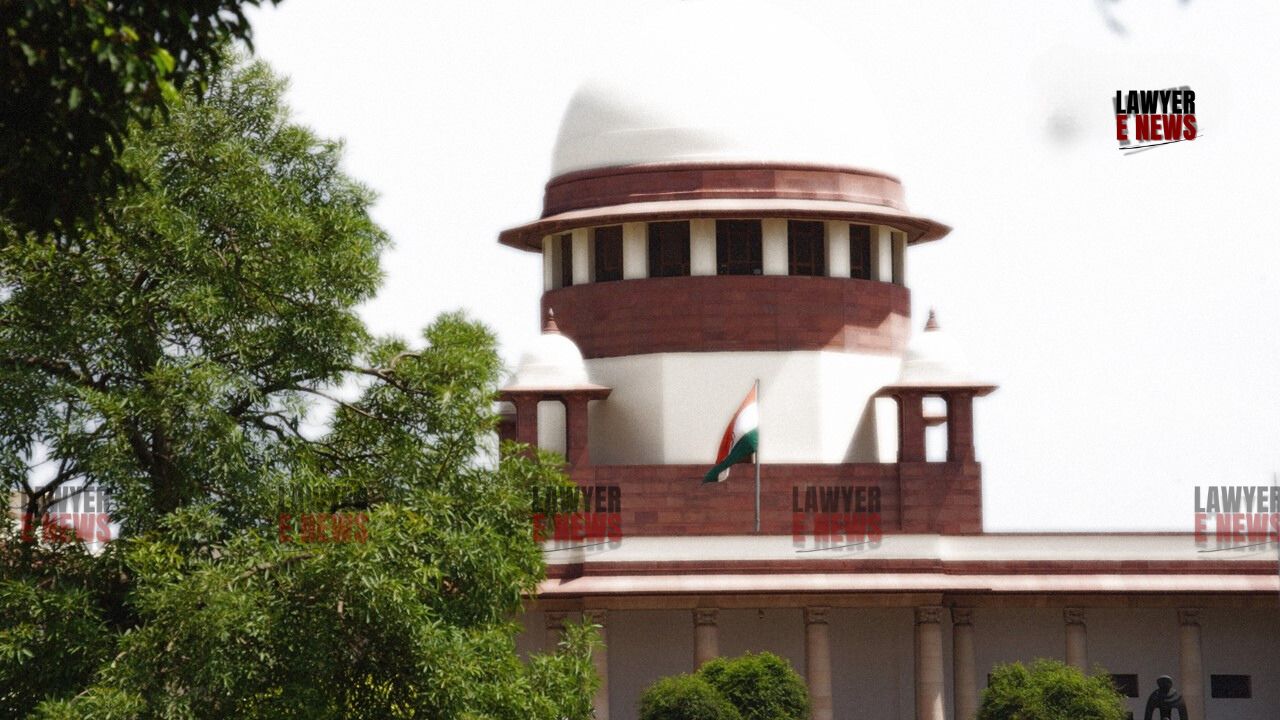-
by Admin
15 February 2026 5:35 AM



Supreme Court of India ruled in Sub Inspector Sanjay Kumar v. State of Uttar Pradesh & Ors., dismissing an appeal against a censure order issued for negligence in completing criminal investigations. The appellant, Sub-Inspector Sanjay Kumar, challenged the censure on grounds of violation of natural justice. The Court upheld the decision of the Allahabad High Court, finding no procedural irregularities in the disciplinary action taken.
The appellant, Sub-Inspector Sanjay Kumar, was posted at Police Station Hanumanganj, District Khushinagar, Uttar Pradesh. During a video conference on September 9, 2021, the Chief Minister of Uttar Pradesh expressed concern over delays in criminal investigations in several districts. Based on a subsequent report identifying officers who failed to complete investigations, an order dated November 16, 2021, was issued by the Additional Chief Secretary, Home (Police), condemning the appellant for "gross negligence, indifference, and selfishness" in his duties. Following this, on March 7, 2022, the Superintendent of Police ordered the entry of censure in the appellant’s service record.
Sub-Inspector Kumar contested this disciplinary action before the Allahabad High Court, arguing that no opportunity to show cause was afforded before imposing the censure. Both the Single Judge and Division Bench dismissed his writ petition, leading to the present appeal before the Supreme Court.
The key issue revolved around whether the censure was imposed in violation of the Uttar Pradesh Police Officers of the Subordinate Ranks (Punishment and Appeal) Rules, 1991, and whether natural justice was adhered to.
Appellant’s Argument: The appellant argued that Rules 5 and 14 of the 1991 Rules, which mandate giving the officer an opportunity to defend against proposed penalties, were not followed. He contended that he was not issued a written notice prior to the censure, and his response to a show cause notice issued by the Circle Officer on September 25, 2021, was disregarded.
Respondents’ Argument: The State of Uttar Pradesh countered that the appellant had been duly notified of his performance deficiencies and that his reply was reviewed. However, his justification—attributing delays to VIP and external duties—was found unsatisfactory, and thus disciplinary action was warranted.
The Supreme Court carefully examined the procedures followed under the 1991 Rules, emphasizing Rule 14(2), which stipulates that a police officer must be informed in writing and given a chance to make representations before any minor penalty, such as censure, is imposed. The Court noted that the appellant was issued a notice, to which he responded, and his performance was subsequently evaluated.
“The Superintendent of Police was competent to award the minor penalty of censure under Rule 7(2) of the Rules, 1991. The order was passed after considering the appellant’s explanation, and the process adhered to both the rules and the principles of natural justice.”
The Court found no merit in the appellant's claims of procedural violation and emphasized that the disciplinary authorities followed due process. It dismissed the appeal, concurring with the High Court's conclusion that the appellant had failed to demonstrate any breach of procedural fairness.
The Supreme Court upheld the censure penalty imposed on Sub-Inspector Sanjay Kumar, ruling that there was no violation of natural justice in the disciplinary proceedings. The Court dismissed the appeal, concluding that the appellant had been given adequate opportunity to defend himself and that the penalty was justified based on his performance.
Date of Decision: September 27, 2024
Sub Inspector Sanjay Kumar v. State of Uttar Pradesh & Ors.
